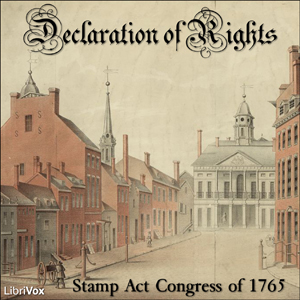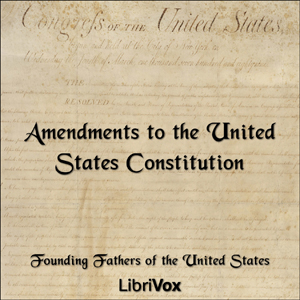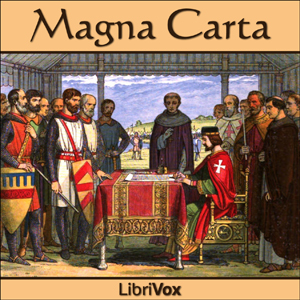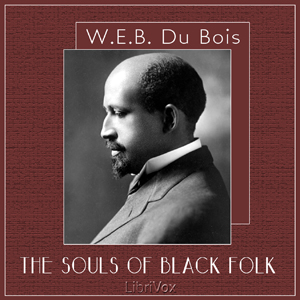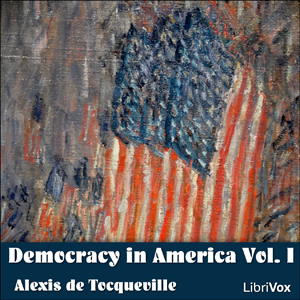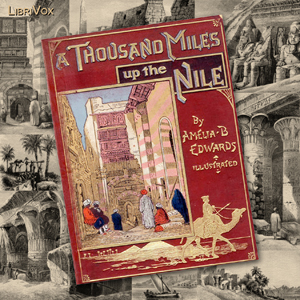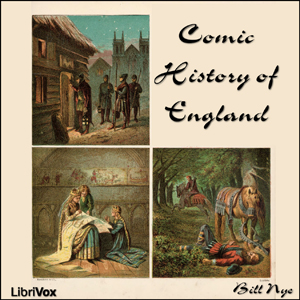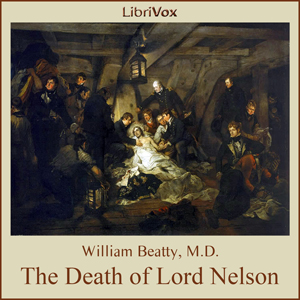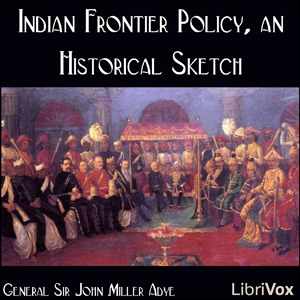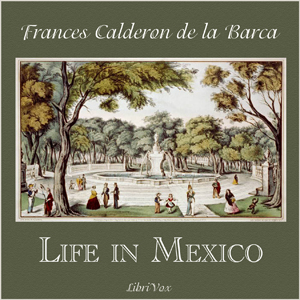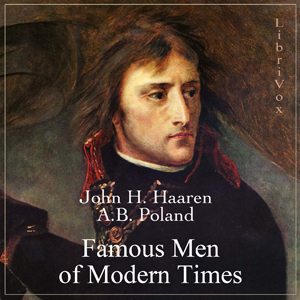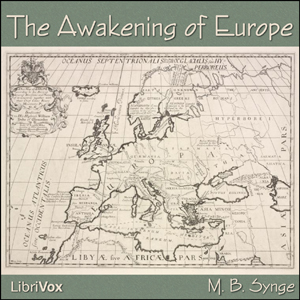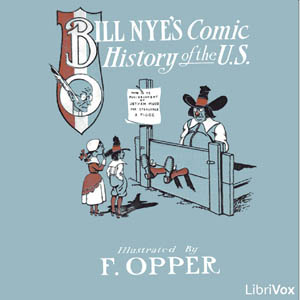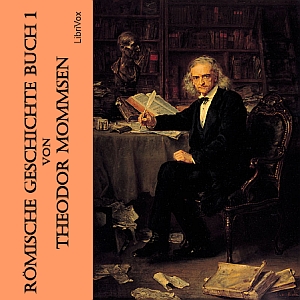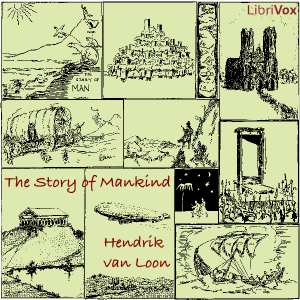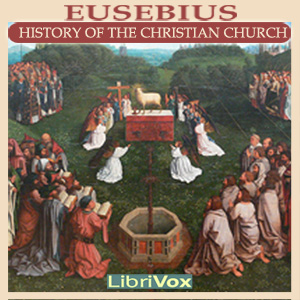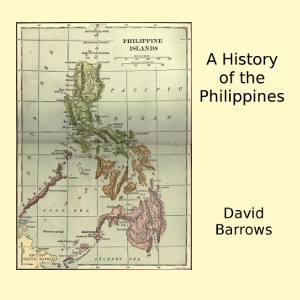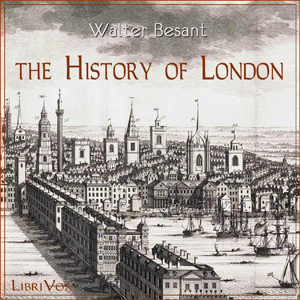On June 8, 1765 James Otis, supported by the Massachusetts Assembly sent a letter to each colony calling for a general meeting of delegates. The meeting was to be held in New York City in October. Representatives from nine colonies met in New York. Though New Hampshire, Virginia, North Carolina and Georgia did not send delegates, the Assemblies of those missing colonies nonetheless agreed to support the works of the Congress. The meetings were held in Federal Hall in New York, and the delegates assembled on October 2. They spent less than two weeks in discussion and at their final meeting on October 19, 1765 adopted the Declaration of Rights and approved its use in petitions to the King and two letters to Parliament. The Declaration of Rights and Grievances raised thirteen points of colonial protest. (Summary from Wikipedia.org)
1 episodes
The Amendments to the Constitution of the USA are a continuously modified document that attempts to secure all basic and other rights for American citizens. The most recent amendment was made in the early 1970's during the Vietnam war; this amendment lowered the voting age to 18.
The first ten amendments (A.K.A. the Bill of Rights) was made by the founding fathers shortly after the actual constitution was made. The Bill of Rights covers all those things that the settlers found wrong with the rule of King George III of England. Such as: Quartering of soldiers, Freedom of speech, and Search and seizure. (Summary by Shurtagal)
6 episodes
This week, to celebrate Columbus Day, LibriVox volunteers bring you six recordings of Columbus by Joaquin Miller. This was the weekly poetry project for the week of October 8th, 2006.
6 episodes
Our Island Story was first published in 1905 and became an instant classic. Beginning with the Romans and following the triumphs and foibles of the good, not so good and the downright despicable figures of history; we are treated to a dazzling montage of kings, queens, barons, knights, explorers, movers and shakers that have played a key role in the history of England. Marshall freely mixes folk tale with historical fact and in so doing paints a very vivid picture of the past in a style reminiscent of all that is finest in the children’s story telling tradition.This is the first section of that work and will carry you from the time when Tacitus first sang the praises of Britannica to his Roman readers up to the vicious and bloodthirsty confusion that is the War of the Roses (about 1500 years). (Summary by Jim)Part 2 of this book may be found at http://librivox.org/our-island-story-part-2-by-he-marshall/.
55 episodes
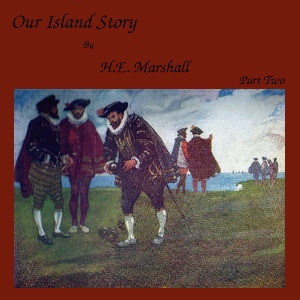
Our Island Story was first published in 1905 and became an instant classic. Beginning with the Romans and following the triumphs and foibles of the good, not so good and the downright despicable figures of history; we are treated to a dazzling montage of kings, queens, barons, knights, explorers, movers and shakers that have played a key role in the history of England. Marshall freely mixes folk tale with historical fact and in so doing paints a very vivid picture of the past in a style reminiscent of all that is finest in the children’s story-telling tradition. This is the second section of that work and will carry you from the convoluted and bloody ‘Wars of the Roses’ up to the death of Queen Victoria and the resolution of the Boer War. Please be advised that this book was written in the early years of the 20th century and there will be words and phrases used then, in all innocence, that are considered politically incorrect in this age. It’s perfectly fine for children to listen to but please ensure there is someone on hand who can explain these terms in a mature fashion.(Summary by Jim)Part 1 of this book may be found at https://librivox.org/our-island-story-part-1-by-he-marshall/.
57 episodes
The title, "History of Holland," given to this volume is fully justified by the predominant part which the great maritime province of Holland took in the War of Independence and throughout the whole of the subsequent history of the Dutch state and people.(Summary from book prologue)
37 episodes
This speech was given March 23, 1775, at St. John's Church in Richmond, Virginia, and is credited with having singlehandedly convinced the Virginia House of Burgesses to pass a resolution delivering the Virginia troops to the Revolutionary War. In attendance were Thomas Jefferson and George Washington. Reportedly, the crowd, upon hearing the speech, jumped up and shouted, “To Arms! To Arms!”
(Summary from Wikipedia)
1 episodes
The original document is in Latin so this can only be a fairly rough approximation of the actual content. The text used is the first version in the Gutenberg collection. - Magna Carta is the most significant early influence on the long historical process that has led to the rule of constitutional law today. Magna Carta was originally created because of disagreements between the Pope, King John and his English barons over the rights of the King. Magna Carta required the king to renounce certain rights and respect certain legal procedures and to accept that the will of the king could be bound by law.
(Summary by Jim Mowatt/Wikipedia)
1 episodes

The Book of Tea was written by Okakura Kakuzo in the early 20th century. It was first published in 1906, and has since been republished many times. - In the book, Kakuzo introduces the term Teaism and how Tea has affected nearly every aspect of Japanese culture, thought, and life. The book is noted to be accessibile to Western audiences because though Kakuzo was born and raised Japanese, he was trained from a young age to speak English; and would speak it all his life, becoming proficient at communicating his thoughts in the Western Mind. In his book he elucidates such topics as Zen and Taoism, but also the secular aspects of Tea and Japanese life. The book emphasises how Teaism taught the Japanese many things; most importantly, simplicity. Kakuzo argues that this tea-induced simplicity affected art and architecture, and he was a long-time student of the visual arts. He ends the book with a chapter on Tea Masters, and spends some time talking about Sen no Rikyu and his contribution to the Japanese Tea Ceremony. (Summary from Wikipedia)
6 episodes

A detailed biography of Thomas Alva Edison, inventor of such things as the telephone, the microphone, the electric motor, the storage battery, and the electric light. In the words of the authors, "It is designed in these pages to bring the reader face to face with Edison; to glance at an interesting childhood and a youthful period marked by a capacity for doing things, and by an insatiable thirst for knowledge; then to accompany him into the great creative stretch of forty years, during which he has done so much. This book shows him plunged deeply into work for which he has always had an incredible capacity, reveals the exercise of his unsurpassed inventive ability, his keen reasoning powers, his tenacious memory, his fertility of resource; follows him through a series of innumerable experiments, conducted methodically, reaching out like rays of search-light into all the regions of science and nature, and finally exhibits him emerging triumphantly from countless difficulties bearing with him in new arts the fruits of victorious struggle." (written by Justin Barrett, with authors' quote taken from the work itself)
53 episodes
The Souls of Black Folk is a well-known work of African-American literature by activist W.E.B. Du Bois. The book, published in 1903, contains several essays on race, some of which had been previously published in Atlantic Monthly magazine. Du Bois drew from his own experiences to develop this groundbreaking work on being African-American in American society. Outside of its notable place in African-American history, The Souls of Black Folk also holds an important place in social science as one of the first works to deal with sociology. (Summary from Wikipedia.org)
18 episodes
Public Domain newspaper articles in the US span a period of nearly two and a half centuries. Subjects, styles, period, publisher, and length vary greatly. This collection is a sampling of twenty such articles including one from the Journal de Paris. Although some of the works on the LibriVox catalog such as the Federalist Papers were published in newspapers, this is the first collection of newspaper articles. (Summary by James Smith).
20 episodes
When Tocqueville visited America in the 1830s he found a thriving democracy of a kind he had not seen anywhere else. Many of his insightful observations American society and political system, found in the two volume book he published after his visit, still remain surprisingly relevant today. (Summary by the Bookworm)
45 episodes
General Pierre Gustave Toutant Beauregard was one of the senior commanders of Southern forces during the Civil War. It was he who initiated the hostilities by opening fire on Ft. Sumter in Charleston harbor, in April, 1861. In July of that year, having taken command of the Confederate Army of the Potomac, he triumphed in the first serious clash of the war, at Manassas, Virginia. His army, aided by reinforcements from Johnston's army in the Shenandoah Valley, routed a Federal army under General McDowell. Had it been his army instead that routed, it is possible the Civil War might have ended that same year, as the path to Richmond would have been wide open. This is his account of the battle, including the strategic situation leading up to it. As an afterward, he added a very revealing appraisal of the relations between him and Confederate President Jefferson Davis, and the reasons why, in his opinion, the South failed to win its war of secession.
3 episodes

The historical works of Tacitus are a history of the period from A.D. 14 to 96 in thirty volumes. Although many of the works were lost (only books 1-5 of the Histories and 1-6 and 11-16 of the Annals survive), enough remains to provide a good sense of Tacitus’s political and moral philosophy.He recognized the necessity for strong rulers but argued that more should be done to manage the succession of power and allow for the ascension of talent. Tacitus asserted that it was the dynastic ambitions of Rome’s many emperors that caused the decline of moral and political life and precluded the possibility of recruiting leaders of real ability. Moreover, the dynastic temptation caused political instability because military force was now required for political change. His works point to the necessity of systematic institutional restraints on power for the preservation of liberty.Gordon’s translation and his lengthy Discourses on Tacitus bring Tacitus’ ideas up to date and apply them to the British state of the early 18th century. (Description from Online Library of Liberty)
29 episodes
Amelia B. Edwards wrote this historical, egyptological, and cultural study in in 1877, and it became an immediate best-seller, reprinted in 1888 at home in England and abroad. She travelled throughout Egypt at a time when most women didn't leave home. One of the pioneering Egyptologists of the age, she established the Edwards Chair of Egyptology, occupied first by the great Sir William Matthew Flinders Petrie.
This book is in a sense a seminal work, known to have influenced the modern writings of Elizabeth Peters in her Amelia Peabody Emerson murder-mystery series. (Summary by Sibella Denton)
75 episodes
Edgar Wilson “Bill” Nye (1850 – 1896) was a distinguished American journalist, who later became widely known as a humorist. Jim “jimmowatt” Mowatt is a distinguished LibriVox volunteer, widely known for his continued devotion both to regularly producing the LibriVox Community Podcast and to regularly creating more and more history audiobooks for the public domain, renowned for his humor and his historically kind demeanor, lately recognized as holding a diploma as well as a mic. In light of that new holding, in celebration of graduation, this bit of history has been recorded with Jim in mind, owing to all that we owe him, glowing with glee that we know him, it’s what we’ve done just to show him that he’s a jolly good fellow. (Summary by Anita and Alan)
19 episodes
Alexander the Great was one of the most successful military commanders in history, and was undefeated in battle. By the time of his death, he had conquered most of the world known to the ancient Greeks.Alexander the Great is one of many biographies aimed at young people written by Jacob Abbott and his brother. The biographies are written in such a way that makes them appealing and easily accessible to everyone. - Written by Wikipedia and Lizzie Driver
12 episodes

Charles Beard was the most influential American historian of the early 20th century. He published hundreds of monographs, textbooks and interpretive studies in both history and political science. He graduated from DePauw University in 1898, where he met and eventually married Mary Ritter Beard, one of the founders of the first greek-letter society for women, Kappa Alpha Theta. Many of his books were written in collaboration with his wife, whose own interests lay in feminism and the labor union movement.
In 1921, Charles and Mary Beard published their textbook: History of the United States. A contemporaneous review stated: The authors… assume enough maturity in…students to justify a topical rather than a chronological treatment. They have dealt with movements, have sketched large backgrounds, have traced causes, and have discussed the interrelation of social and economic forces and politics. All this has been directed to the large purpose of helping the student to understand American today in all its national characteristics and as part of world civilization as well..The literary style is exceptionally clear and crisp, and the whole approach…is thought producing. As a textbook or handbook for the average citizen it ranks with very best.
9 episodes
"The Surgeon of the late illustrious Lord NELSON feels himself called
upon, from the responsible situation which he held on the eventful day
of the 21st of October 1805, to lay before the British Nation the
following Narrative. It contains an account of the most interesting
incidents which occurred on board the Victory. (Lord NELSON's flag-ship)
from the time of her sailing from England, in the month of September,
till the day of battle inclusively." -William Beatty, M.D.
5 episodes
"The subject of our policy on the North-West frontier of India is one of great importance, as affecting the general welfare of our Eastern Empire, and is specially interesting at the present time, when military operations on a considerable scale are being conducted against a combination of the independent tribes along the frontier. It must be understood that the present condition of affairs is no mere sudden outbreak on the part of our turbulent neighbours. Its causes lie far deeper, and are the consequences of events in bygone years". (From the author's Preface, 1897).
3 episodes
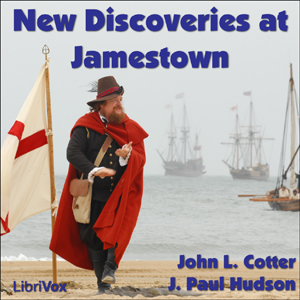
Chances are, you are reading this because you are aware that Jamestown, Virginia, celebrated its 400th birthday in 2007. It was the first "successful" English settlement in America. Although the colonists eventually moved upriver to be quit of the hard luck and difficult conditions on the small island, they left behind a trove of possessions - used, worn out, or forgotten.Did you ever stop to consider just how many different items you have, need, or use, to live, work, and amuse yourself? Chances are that you would seriously underestimate! But once you put such a list together, another person could tell quite a story about the life you lead.The puzzle of archeology is how to tell that story, just from the discovery of the traces you leave behind. Literally hundreds of thousands of artifacts have been recovered from this pioneering community during three major efforts (1903, the 1950's, and 1994-present) to reconstruct how Europeans of the early 17th century managed to transplant themselves to a wild and hostile land.The authors, writing for the National Park Service in 1956, relate a fascinating tale of the colonists' resources, their possessions, and their manufactures. They relate documentary evidence from England, Virginia, and elsewhere, and then match it up with items found on the site.Think about packing for a trip to a new world, where you will spend the rest of your life. There are no shops, no regular supply deliveries. You will build your own home. Food is strictly grown or caught on your own. The local folks (Indians) may be (and were, at some times!) hostile to your presence. You will depend on only a few dozen other people to help you with the things you don't know how to do, and they will depend on you. How do you prepare? What do you take?This is that story.For an easy-to-understand history of Jamestown, have a look at this site: http://www.tobacco.org/History/Jamestown.htmlTo help you visualize Jamestown, and especially the area of the original three-sided fort, I highly recommend this site: http://www.apva.org/finding/index.html (Summary by Mark F. Smith)
7 episodes

John Wesley Powell was a pioneer American explorer, ethnologist, and geologist in the 19th Century. In 1869 he set out to explore the Colorado and the Grand Canyon. He gathered nine men, four boats and food for ten months and set out from Green River, Wyoming, on May 24. Passing through dangerous rapids, the group passed down the Green River to its confluence with the Colorado River (then also known as the Grand River upriver from the junction), near present-day Moab, Utah.The expedition's route traveled through the Utah canyons of the Colorado River, which Powell described in his published diary as having …wonderful features—carved walls, royal arches, glens, alcove gulches, mounds and monuments. From which of these features shall we select a name? We decide to call it Glen Canyon. (Ironically, now almost completely submerged by Lake Powell, behind the Glen Canyon Dam.)One man (Goodman) quit after the first month and another three (Dunn and the Howland brothers) left at Separation Rapid in the third, only two days before the group reached the mouth of the Virgin River on August 30 after traversing almost 1,500 km. The three who left the group late in the trip were later killed—probably by Indians.Powell retraced the route in 1871-1872 with another expedition, producing photographs, an accurate map, and various papers, including ethnographic reports of the area's Native Americans and a monograph on their languages. --adapted from Wikipedia
16 episodes
This collection of 20 public domain newspaper articles comprises volume 2 of Historic Newspaper Articles in the LibriVox collection. Both U.S. and U.K. newspapers are represented here. The articles span from 1848 to 1920. Topics covered (e.g., the Triangle Shirt Waist Factory Fire, the troubles of ‘Typhoid Mary’, how to dress for the seashore) vary in length and tone. Although the writers display a range of diverse styles, their words give today's readers a sense of the tenor of the times. (summary by Lee Ann Howlett)
20 episodes

A collection of ten short nonfiction works in the public domain. The essays, speeches, news items and reports included in this collection were independently selected by the readers, and the topics encompass history, politics, philosophy, nature and religion. Included in this collection are “The Emanicpation Proclamation” and Second Inaugural Address of Abraham Lincoln, “Prinicpal Doctrines” by Epicurus, “Fox and Hound” and the preface to “The Breath of Life” both by John Burroughs, “The Wentworth Letter” by Joseph Smith, and “The Rhythm of Life” by Alice Meynell. From the New York Times, April 10, 1817 is an account of the Canadian capture of Vimy Ridge, “Haig Strikes Near Arras” and from the September 1921 issue of Vanity Fair an article on “The Flapper - A New Type.” And for the those with more than a passing in the history of railways/roads, the “Report of the Railway Department of the Board of Trade” from February 1845 which impacted the ‘gauge wars’ of the mid-nineteenth century in England wraps up the list! (summary by J. M. Smallheer)
10 episodes
A collection of fifteen short nonfiction works in the public domain. The essays, speeches and reports included in this collection were independently selected by the readers, and the topics encompass history, politics, medicine, nature and religion. Included in this collection are speeches by George Washington and Abraham Lincoln, Martin Luther's Ninety-five Theses, several interesting or historic articles from Vanity Fair and the NY times, as well as writings of Eugene Debs, Alexander von Humboldt, Lena Morrow Lewis, Joseph Lister and C. M. Ellis. (summary by J. M. Smallheer)
15 episodes
This is a detailed and accurate account of the most
awful marine disaster in history, constructed from the real facts as obtained from those on board who survived (gutenberg.org).
19 episodes
Einhard was employed by Charlemagne as a court historian. At the request of Charlemagne's son and successor Louis the Pious, he wrote a biography of Charlemagne, the Vita Karoli Magni or Life of Charlemagne (c. 817–830), which provides much direct information about Charlemagne's life and character. In composing this he made full use of the Frankish Royal annals. Einhard's literary model was the classical work of the Roman historian Suetonius, the Lives of the Caesars. (summary adapted from Wikipedia by K. Merline)
5 episodes
Brooks Adams (1848-1927), was an American historian and a critic of capitalism. He believed that commercial civilizations rise and fall in predictable cycles. First, masses of people draw together in large population centers and engage in commercial activities. As their desire for wealth grows, they discard spiritual and creative values. Their greed leads to distrust and dishonesty, and eventually the society crumbles. In The Law of Civilisation and Decay (1895), Adams noted that as new population centers emerged in the west, centers of world trade shifted from Constantinople to Venice to Amsterdam to London. He predicted in America’s Economic Supremacy (1900) that New York would become the centre for world trade. The Theory of Social Revolutions was written in 1913. (Wikipedia)
6 episodes
FRANCES CALDERON DE LA BARCA, born in Edinburgh, 1804, the daughter of William Inglis. After her father's death she settled in America, where she married the Spanish diplomat, Don Angel Calderon de la Barca. She accompanied him on his various appointments to Mexico, Washington, and finally to Madrid, where she was created Marquesa de Calderon de la Barca by Alfonso XII and died in 1882. The present work is the result of observations made during a two years' residence in Mexico, by a lady, whose position there made her intimately acquainted with its society, and opened to her the best sources of information in regard to whatever could interest an enlightened foreigner. It consists of letters written to the members of her own family, and, really, not intended originally--however incredible the assertion—for publication. Taken from text itself and part of preface.
56 episodes
A collection of fifteen short nonfiction works in the public domain. The essays, speeches, news items and reports included in this collection were independently selected by the readers, and the topics encompass history, politics, philosophy, science and religion. (summary by J. M. Smallheer)
Danger Signals and A Midsummer's Night Trip were coauthored by Jaspar Ewing Brady
15 episodes
Famous Men of Modern Times is a series of biographical sketches written for the purpose of making the study of history lively and interesting by giving insight into the men who lived during this time. Summary by Laura Caldwell
34 episodes
The Awakening of Europe by M. B. Synge is the third book in the series, Story of the World. Included in this history is a myriad of interesting men, women, and events that shaped Europe during the years 1520-1745. (Summary by Laura Caldwell)
53 episodes
This text takes the reader on a comical journey from the time of the first European settlement through the Civil War. The author's caustic wit is evident throughout the book in his numerous sarcastic and humorous remarks. The reader will enjoy a "different" type of history book based on facts, yet caustically embellished for entertainment purposes.
(Summary by Allyson Hester)
16 episodes
Schiller (1759 - 1805), einer der Weimarer Klassiker, bekannt als Dichter und Dramatiker, studierte zunächst Medizin, wirkte auch als Philosoph und Historiker. Seine in meisterhaftem Deutsch geschriebene Geschichte des dreißigjährigen Kriegs gibt tiefe Einblicke in diesen und seine weitreichenden Folgen. Summary by redaer)
34 episodes
9/11 Commission Report, formally titled Final Report of the National Commission on Terrorist Attacks Upon the United States, is the official report of the events leading up to the September 11, 2001 attacks. It was prepared by the National Commission on Terrorist Attacks Upon the United States (informally sometimes known as the "9/11 Commission" or the "Kean/Zelikow Commission") at the request of the President of the United States and Congress.
The commission convened on November 26, 2002 (441 days after the attack) and their final report was issued on July 22, 2004
57 episodes
Mommsen (1817-1903) erhielt für die Römische Geschichte 1902 den Nobelpreis für Literatur.
Erstes Buch
Bis zur Abschaffung des römischen Königtums.
30 episodes
Mommsen (1817-1903) erhielt für die Römische Geschichte 1902 den Nobelpreis für Literatur.
Zweites Buch
Von der Abschaffung des roemischen Koenigtums bis zur Einigung Italiens
This reading is in German.
31 episodes
As that heavenly bit of chocolate melts in our mouths, we give little thought as to where it came from, the arduous work that went in to its creation, and the complex process of its maturation from a bean to the delicacy we all enjoy. This "little book" details everything you have ever wanted to know (and some things you never knew you wanted to know) about cocoa and chocolate from how the trees are planted and sustained to which countries produce the most cacao beans. Do cacao beans from various countries differ? What makes some types of chocolate higher quality than other kinds? Are there any health benefits to eating chocolate? Read on to learn the answers to these and many other questions about that wondrous little treat we call chocolate. (Summary by Allyson Hester)
10 episodes
Historische Übersichten by Friedrich von Schiller (1759 – 1805). Schiller, einer der Weimarer Klassiker, bekannt als Dichter und Dramatiker, gibt in meisterhaftem Deutsch kurze Darstellungen “Ueber Völkerwanderung, Kreuzzüge und Mittelalter”, “Uebersicht des Zustands von Europa zur Zeit des ersten Kreuzzugs” (Ein Fragment), “Universalhistorische Uebersicht der merkwürdigsten Staatsbegebenheiten zu den Zeiten Kaiser Friedrichs I” (nicht beendet).
(Zusammenfassung von redaer)
5 episodes
This is the official report, published nearly 11 months after the first and only atomic bombings in history (to date), of a group of military physicians and engineers who accompanied the initial contingent of U.S. soldiers into the destroyed cities of Hiroshima and Nagasaki. The report presents a clinical description of the devastation, loss of life and continued suffering of the survivors that resulted from the world's first and only atomic bombings, to date. The appendix is an eyewitness account, contrasting vividly with the dispassionate sang-froid of the report itself, written by a German Jesuit priest who survived the blast at Hiroshima, and whose order assisted in rescue efforts following the catastrophic attack. This recording was completed on the 63rd anniversary of the events. (Summary by Dennis Sayers).
8 episodes
Relates the story of western civilization from earliest times through the beginning of the twentieth century, with special emphasis on the people and events that changed the course of history. Portrays in vivid prose the achievements of mankind in the areas of art and discovery, as well as the political forces leading to the modern nation-states. Richly illustrated with drawings by the author. Winner of the first Newbery Award in 1922, The Story of Mankind has introduced generations of children to the pageant of world history. (Summary from mainlesson.com)
65 episodes
Eusebius presents the history of the Church from the apostles to his own time, with special regard to the following points:
1. the successions of bishops in the principal sees
2. the history of Christian teachers
3. the history of heresies
4. the history of the Jews
5. the relations to the heathen
6. the martyrdoms. (Summary adapted from Wikipedia)
37 episodes
Up From Slavery is the 1901 autobiography of Booker T. Washington detailing his slow and steady rise from a slave child during the Civil War, to the difficulties and obstacles he overcame to get an education at the new Hampton University, to his work establishing vocational schools—most notably the Tuskegee Institute in Alabama—to help black people and other disadvantaged minorities learn useful, marketable skills and work to pull themselves, as a race, up by the bootstraps. He reflects on the generosity of both teachers and philanthropists who helped in educating blacks and native Americans. He describes his efforts to instill manners, breeding, health and a feeling of dignity to students. (Summary from Wikipedia)
18 episodes

Piracy embodies the romance of the sea at its highest expression. It is
a sad but inevitable commentary on our civilization, that, so far as the
sea is concerned, it has developed from its infancy down to a century or
so ago, under one phase or another of piracy. If men were savages on
land they were doubly so at sea, and all the years of maritime
adventure--years that added to the map of the world till there was
little left to discover--could not wholly eradicate the piratical germ.
It went out gradually with the settlement and ordering of the far-flung
British colonies. Great Britain, foremost of sea powers, must be
credited with doing more both directly and indirectly for the abolition
of crime and disorder on the high seas than any other force. But the
conquest was not complete till the advent of steam which chased the
sea-rover into the farthest corners of his domain. It is said that he
survives even today in certain spots in the Chinese waters,--but he is
certainly an innocuous relic. A pirate of any sort would be as great a
curiosity today if he could be caught and exhibited as a fabulous
monster.
(Summary from text)
20 episodes
This book is in no degree an attempt to relate the involved and intricate history of the Middle Ages. Its plan is, rather, to present pictures of the manner of life and habits of thought of the people who lived between the eighth and fifteenth centuries. Our writings and our everyday conversation are full of their phrases and of allusions to their ideas. Many of our thoughts and feelings and instincts, of our very follies and superstitions, have descended to us from them. To become better acquainted with them is to explain ourselves. (Summary from the Preface of When Knights Were Bold.)
16 episodes
This book is one of the earliest studies of Philippine history by an American scholar. In preparation for this book, the author conducted ethnological studies of indiginous island tribes after the American war in the Philippines. Since this book was intended for the Philippine reader, the author nicely places the history of the Islands into the broader context of European and American history. (Summary by JoeD)
25 episodes
Walter Besant was a novelist and historian, and his topographical and historical writings, ranging from prehistoric times to the nineteenth century, were probably best known through the detailed 10-volume Survey of London published after his death.
This earlier single volume covers, in less depth, the whole period from prehistory until the 19th century. The book appears originally to have been written for boys, and, indeed, the chapters are called "Lessons". However, it is a very readable history and provides a fascinating insight into both London's past and the government of the City at the time the book was written (1894). (Summary by Ruth Golding)
28 episodes
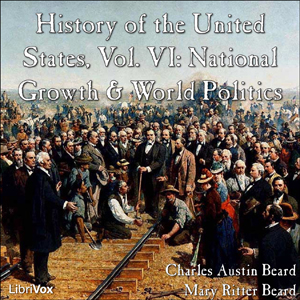
Charles Beard was the most influential American historian of the early 20th century. He published hundreds of monographs, textbooks and interpretive studies in both history and political science. He graduated from DePauw University in 1898, where he met and eventually married Mary Ritter Beard, one of the founders of the first greek-letter society for women, Kappa Alpha Theta. Many of his books were written in collaboration with his wife, whose own interests lay in feminism and the labor union movement.In 1921, Charles and Mary Beard published their textbook: History of the United States. A contemporaneous review stated: The authors… assume enough maturity in…students to justify a topical rather than a chronological treatment. They have dealt with movements, have sketched large backgrounds, have traced causes, and have discussed the interrelation of social and economic forces and politics. All this has been directed to the large purpose of helping the student to understand American today in all its national characteristics and as part of world civilization as well...The literary style is exceptionally clear and crisp, and the whole approach…is thought producing. As a textbook or handbook for the average citizen it ranks with very best.The book is divided into 7 parts: THE COLONIAL PERIOD, CONFLICT AND INDEPENDENCE, FOUNDATIONS OF THE UNION AND NATIONAL POLITICS, THE WEST AND JACKSONIAN DEMOCRACY, SECTIONAL CONFLICT AND RECONSTRUCTION, NATIONAL GROWTH AND WORLD POLITICS, AND PROGRESSIVE DEMOCRACY AND THE WORLD WAR. (Summary by TTM)
5 episodes
Henry Augustin Beers, native of Buffalo, NY and professor of English at Yale, with the help of John Fletcher Hurst (1834-1903), Methodist bishop and first Chancellor of American University, has written a sweeping thousand 900 year history of English literature, up to the end of the 19th century. Although at times biased and sometimes misguided (as when he dismisses Mark Twain as a humorist noteworthy in his time but not for the ages), his research is sound and his criticism is interesting and quite often very balanced. In addition, the last chapter of each part is Hurst's synopsis of religious and theological literature in the language. This book is interesting for its point of view, but also useful as a jumping-off point for those interested in reading the classics. (Summary by Kalynda)
18 episodes
